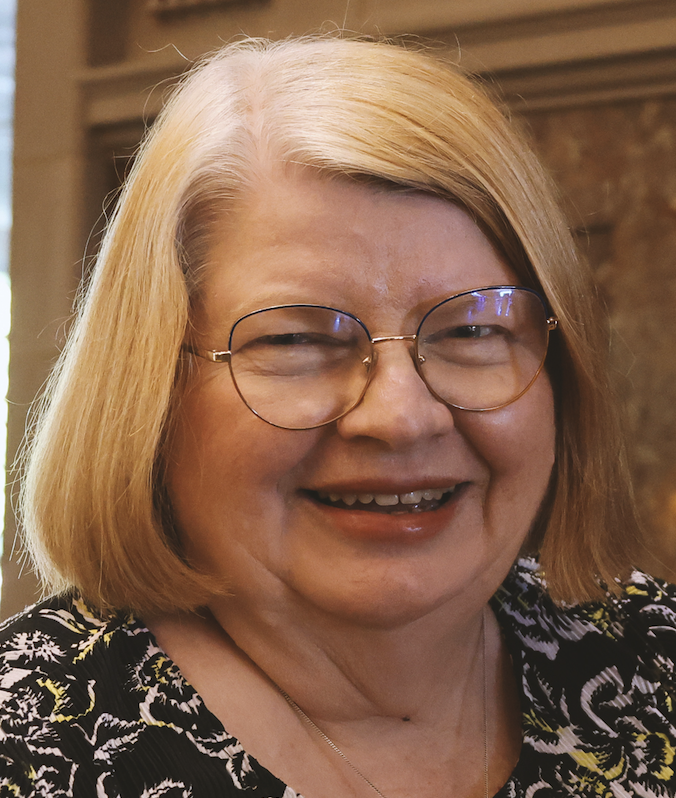
Professor Carol Oliver
PhD University of New South Wales (2008)
Master of Science Communication, Central Queensland University (2003)
Prof Carol Oliver is a nationally and internationally recognised Education-Focused academic teaching evidence-based science communication and astrobiology (the search for life elsewhere in the universe). She specialises in online learning with a teaching philosophy of education through exploration in learning and teaching and assessment practices. She pioneered the first astrobiology-related laptop-delivered immersive Virtual Field Trip with NASA Learning Technologies and, in 2021, inspired the formation of a group of academics, learning designers and developers to make the first academic-friendly VFT immersive authoring available to all at UNSW. The Teaching and Learning Immersive Authoring (TALIA) allows academics and students to make their VFTs without training. Carol has created a suite of VFTs for her astrobiology courses, several in collaboration with the University of Auckland and Georgia State University. She also engages in a virtual exchange between GSU and UNSW astrobiology students.
She supervises several research students and has completed seven PhDs and two Honours candidates. In addition, Carol's teaching excellence is held in high esteem internationally (Senior Fellow of the UK Higher Education Academy, 2021) and within UNSW (Fellow of the Scientia Education Academy as one of UNSW's top 40 educators (2022), gaining the Australian Awards for University Teaching Citation for Outstanding Contributions to Student Learning (2023) and the Vice Chancellor's Award for Teaching Excellence (2022). Carol initiated, designed, developed, currently convenes, and teaches four fully online elective courses (BEES6800 The Science of Science Communication; BEES6741 Astrobiology: Life in the Universe; BEES2680 Introduction to Science Communication; and BEES2741 Introduction to Astrobiology).
Carol is an elected International Academy of Astronautics member and co-chairs its Permanent SETI (Search for Extraterrestrial Intelligence) Committee and its Post-Detection Task Group. She is also an International Associate of the SETIHub at the University of St Andrews in Fife, Scotland. She is a member of the Science Organising Committee of the IAU/Kavli Foundation symposium "Toward Discovery of Life Beyond Earth and its Impact" to be held at the University of Durham, UK, 15-19 April 2024, an invited speaker, and co-editor of the conference proceedings.
She engages with the media and contributes to The Conversation, the most recent one on international space law, in January 2024. Carol is a deputy director of the iCinema Research Centre and a member of the Australian Centre for Astrobiology and the Earth and Sustainability Sciences Research Centre, the latter in the School of Biological, Earth, and Environmental Sciences.
- Publications
- Media
- Grants
- Awards
- Research Activities
- Engagement
- Teaching and Supervision
1. 2019-2022 - ARC Linkage (UNSW and Powerhouse Museum), Redefining the museum experience as an immersive networked narrative (CI). $466,150.
2. 2016-2017 - UNSW Scientia Education Investment Fund, Intelligent and generic cross-platform virtual reality for next-generation student experiences: New frameworks for immersive pedagogy, (CI), $359k.
3. 2015-2016 - UNSW Scientia Education Investment Fund, Enhancing a large online course using interactive web technology (CI), $278k.
4. 2013-2014 - Australian Maths and Science Partnerships Program, Smart Science Initiative (PI), $1.64m.
5. 2012-2015 - The Mars Lab, Broadband-Enabled Education and Skills Services Program (PI), $2.9m.
6. 2010-2013 - Pathways to Space, Australian Space Research Program (PI), $987,573.
7. 2005-2007 - Australian Schools Innovation in Science, Technology and Mathematics Program, $119,500, (CI)
Senior Fellow Higher Education Academy (2021 - )
Fellow of the UNSW Scientia Education Academy (2022-2026)
Fellow of the UNSW PLuS Alliance (2018 - )
Australian Awards for University Teaching Citation for Outstanding Contributions to Student Learning (2023)
UNSW Vice Chancellor's Award for Teaching Excellence (2022)
Fulbright Symposium (2002)
American Field Service Scholarship (1966-67)
- Science communication
- Astrobiology
- Technology-enabled online learning
My Research Supervision
One PhD student and one Master's student.
